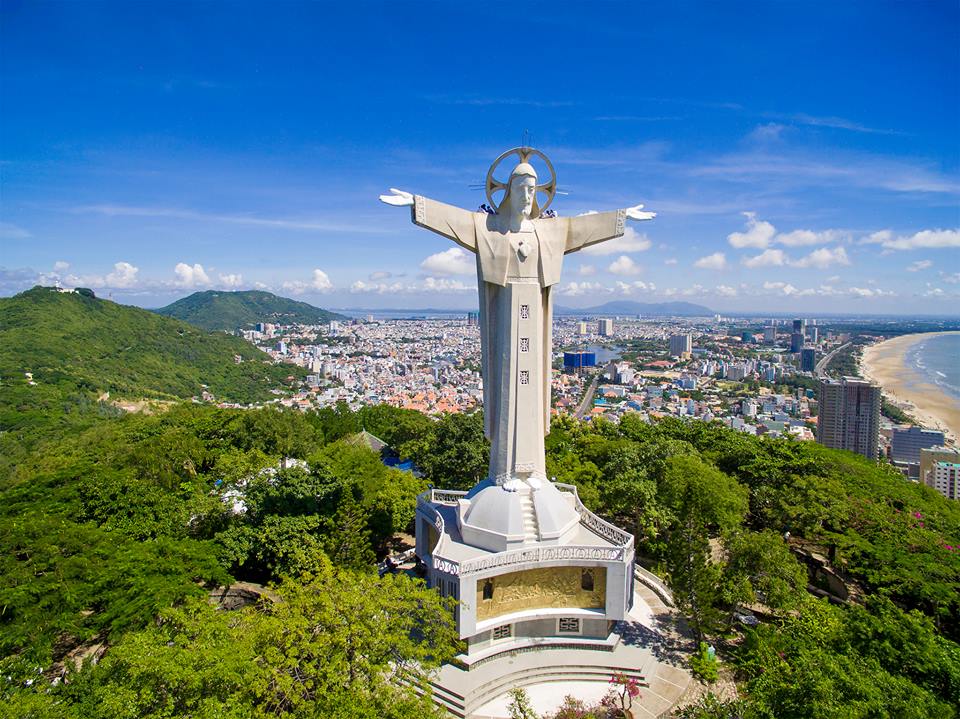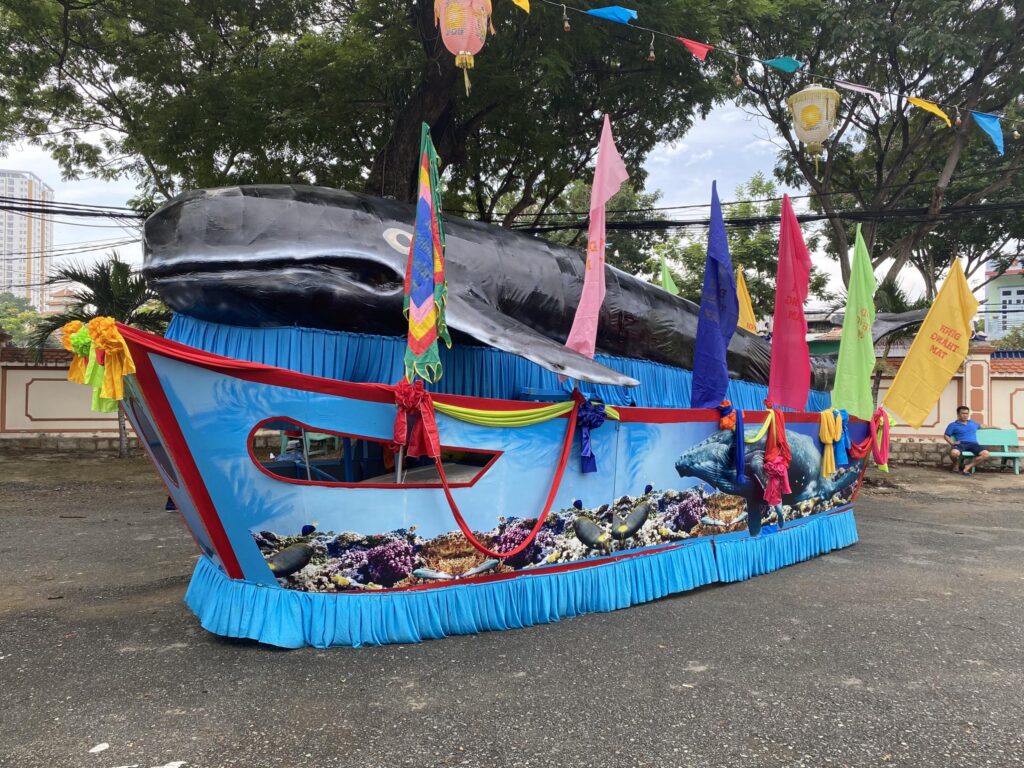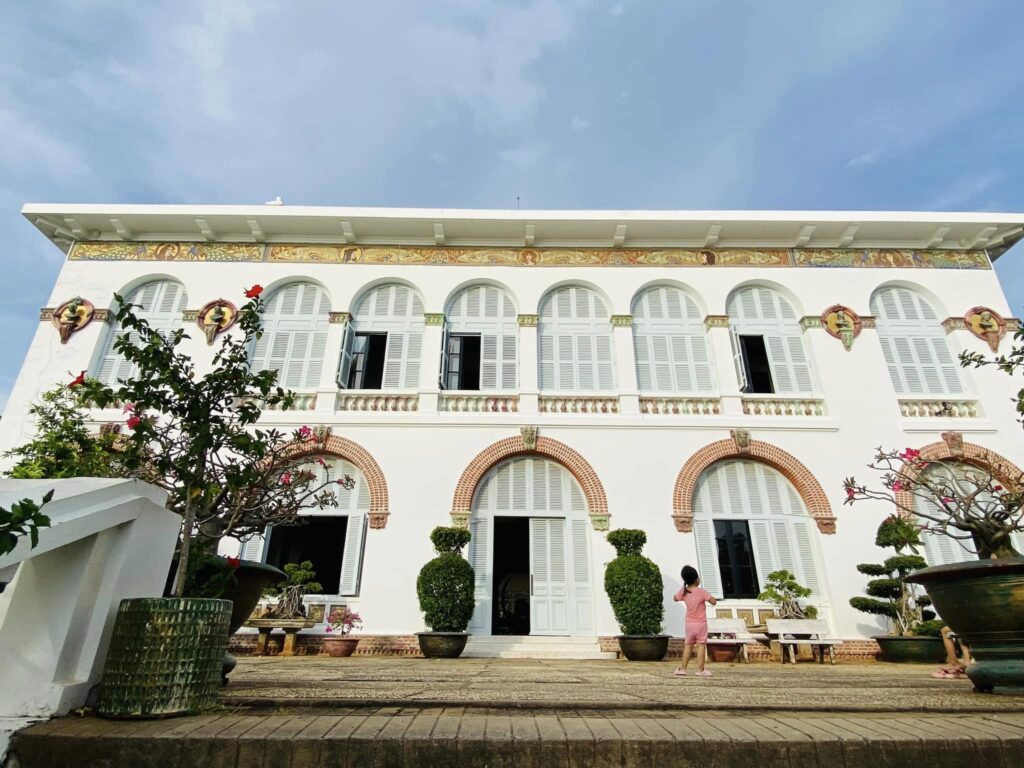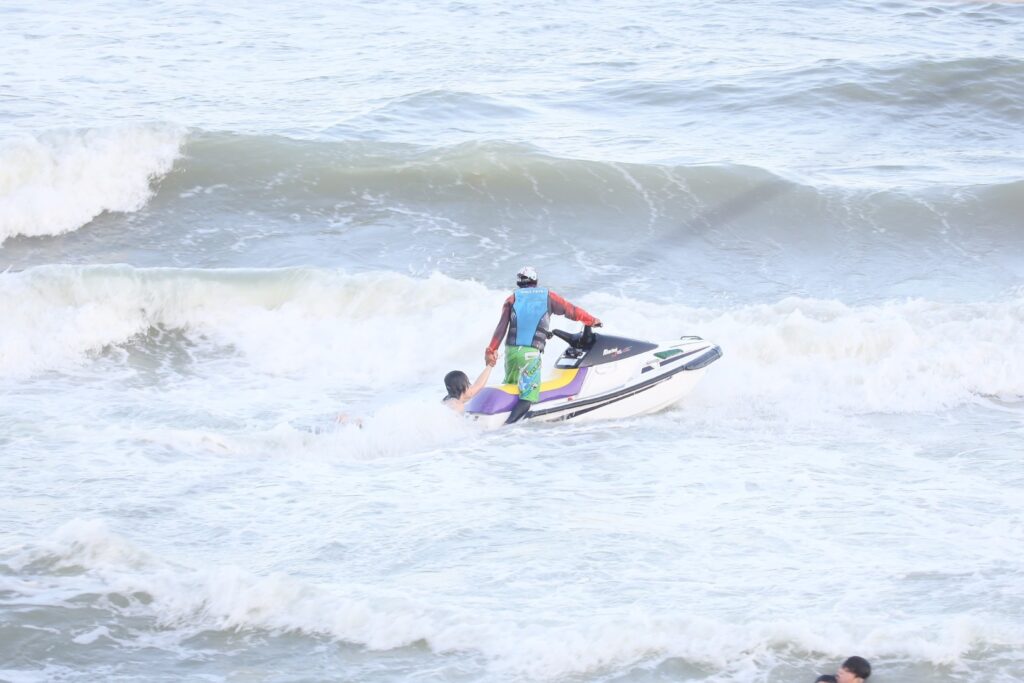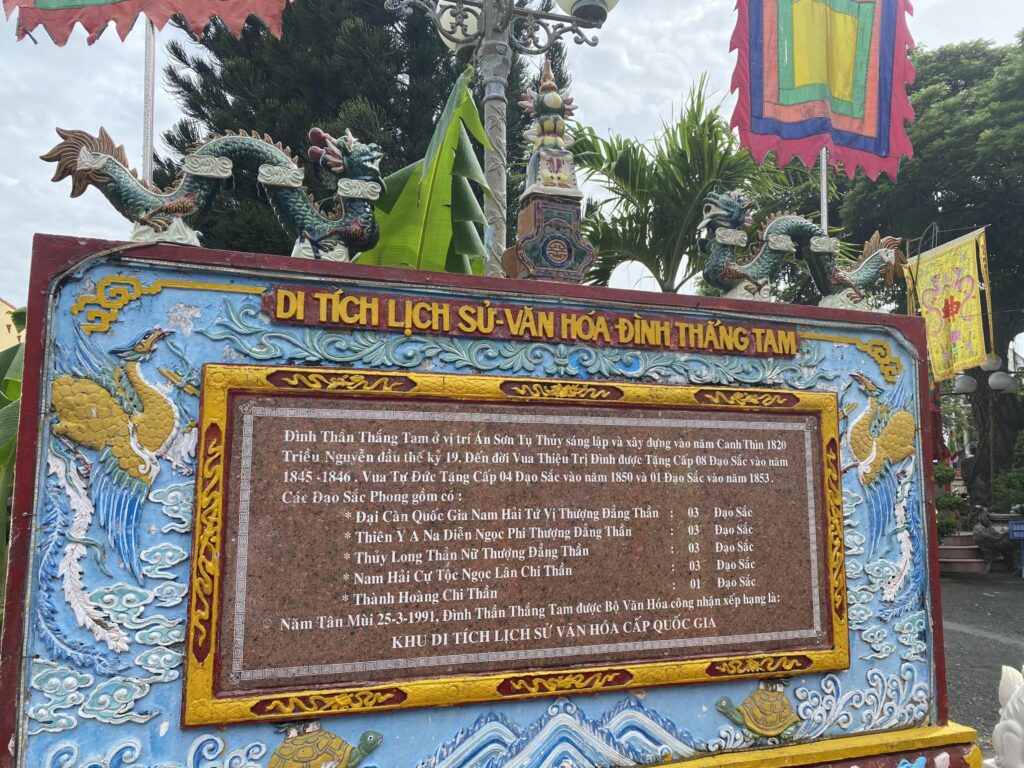The Christ the King Statue, also known as the Statue of Christ with Outstretched Arms, is one of the most remarkable landmarks that visitors should not miss when exploring the coastal city of Vũng Tàu.
Situated atop Tao Phùng Mountain—also called Small Mountain, one of the most scenic peaks in Vũng Tàu—the statue stands tall and majestic, serving as a defining symbol of the city.
Thanks to its prime location and breathtaking scenery, the Christ the King Statue is among Vũng Tàu’s most popular tourist attractions and an essential stop for any trip to this vibrant seaside destination.

Construction History of the Christ the King Statue
Construction of the statue began in the early 1970s, but due to external circumstances, the project was halted and later moved to a new site. It was not until 1994 that the statue was officially completed and inaugurated.
Originally, the statue had a different design, but because it was rebuilt at a higher, windier, and more weather-exposed location, the structure required a new, stronger architectural plan. The current design meets those demands with solid engineering and large-scale construction.
Most of the materials were sourced domestically:
– Sand and gravel from the Đồng Nai River
– Marble from Non Nước, Đà Nẵng
– Only white cement was imported
Building on a high mountain made transportation extremely challenging—thousands of tons of materials had to be carried uphill. Excavation for the foundation also proved difficult because the mountaintop contained a network of reinforced concrete bunkers built during the French colonial period.
Architecture and Structure
The most distinctive feature of the statue is Christ’s wide outstretched arms, as if embracing and protecting all who come before Him.
At the base of the statue are two beautifully carved reliefs depicting:
- The Last Supper
- Jesus giving the Keys to Saint Peter
From the base, visitors can climb more than 100 spiral steps inside the statue leading to both arms.
Key dimensions:
- Height: 32 meters
- Arm span: 18.4 meters
- Internal staircase: 133 spiral steps
- Capacity: Up to 100 visitors inside the statue at once
On January 18, 1993, the Christ the King Statue was recognized as a National Historical and Cultural Site.
With its grand scale and distinctive design, the statue received the record for “Vietnam’s Largest Jesus Statue” in 2006. In 2012, VietKings recognized it as one of Asia’s notable spiritual destinations, awarding it the title of “Largest Christ the King Statue in Asia.”
This is also one of the best viewpoints to take in panoramic vistas of Vũng Tàu’s coastline, cool sea breezes, and unforgettable photographs.

How to Visit the Christ the King Statue
Reaching the statue is very convenient. Visitors can travel from:
- Back Beach (Bãi Sau) along Thùy Vân Street to Nghinh Phong Cape
- Or from Front Beach (Bãi Trước) along Hạ Long Street to the same area
There is a large parking area for cars and motorbikes at the foot of the mountain.
From there, visitors must climb nearly 1,000 steps (about 500 meters). The path is shaded by trees and fragrant frangipani blossoms, providing a pleasant ascent.
Along the way, several rest stops offer fresh breezes and partial ocean views.
Upon reaching the summit, visitors are met with the awe-inspiring sight of the towering statue, arms spread wide toward the sea. Shoes must be removed before entering the statue’s interior.
Inside, a narrow spiral staircase leads to the shoulders and out onto the arms, where the most exhilarating experience awaits—standing on Christ’s outstretched arms, overlooking:
- The entire city of Vũng Tàu
- Long, sweeping beaches
- Curving coastal roads
- Mountain ridges and open ocean views
It is truly one of the most memorable viewpoints in Vietnam.
Opening Hours & Visitor Guidelines
Open: 7:00 AM – 5:00 PM
Admission: Free
Dress code: Respectful clothing—shirts with sleeves, and pants/skirts below the knee
Footwear: Wear comfortable shoes suitable for climbing



